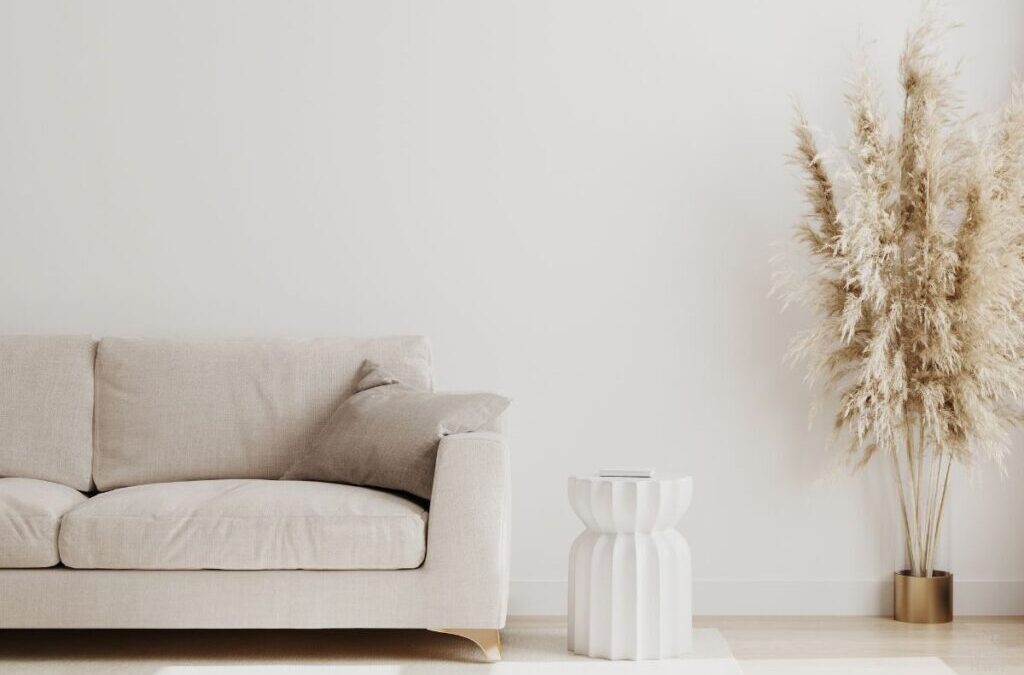Inside: Discover how to master the quiet luxury aesthetic in a minimalist home.
A guest post by Cora Gold
In a world that often celebrates more—more stuff, more noise, more distractions—there’s something deeply refreshing about choosing less.
Minimalism has long offered a path to peace through simplicity, but lately, a new style has been making waves: quiet luxury. It’s a design approach that feels refined yet approachable, sophisticated yet serene.
Quiet luxury isn’t about flashy labels or high price tags. It’s about intentional choices, timeless materials, and a home that feels grounded, calm, and elevated all at once.
If you’ve embraced minimalism and are looking to add a layer of warmth and elegance without the clutter, quiet luxury might be exactly what you’re looking for.
Minimalism is about making space for what truly matters. The quiet luxury aesthetic builds on that idea by focusing on calm, comfort, and understated beauty.
In this post, we’ll explore simple ways to bring the quiet luxury aesthetic into your minimalist home, without compromising your values or your budget. Let’s take a thoughtful look at how less can truly be more.
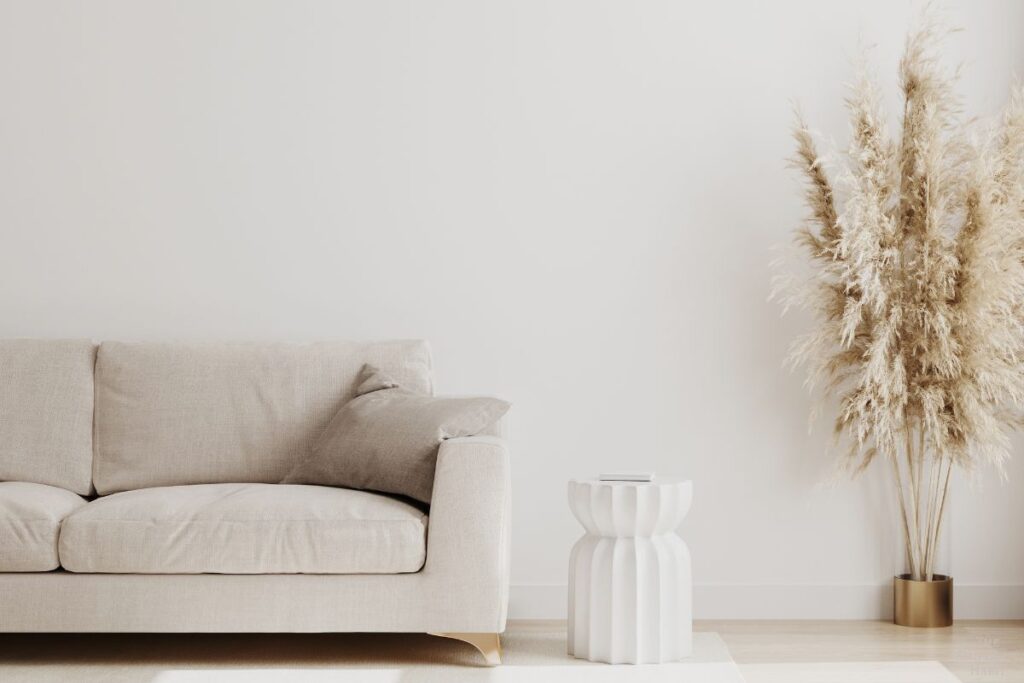
15 Ways to Master the Quiet Luxury Aesthetic in a Minimalist Home
Here are fiftenn ways to master quiet luxury aesthetic in a minimalist home.
1. Remove Before You Add
Before adding stuff, start editing out what’s already there. Determine what’s become clutter in your home. Only keep items that are useful, meaningful, or beautiful.
Avoid filling shelves because you think they’re empty. Instead, embrace vacant walls.
Each piece should have intention and breathing room. Let negative space work in your favor. It draws attention to the essentials and makes your home feel lighter and more grounded.
2. Paint With Neutrals
Use a palette of whites, creams, beiges, soft grays, and warm taupe. These versatile hues create visual harmony and make your space feel more open.
Give tonal layering a go and avoid stark contrasts or sterile white for the sake of being minimalist. When in doubt, add some warm tones that automatically add luxury.
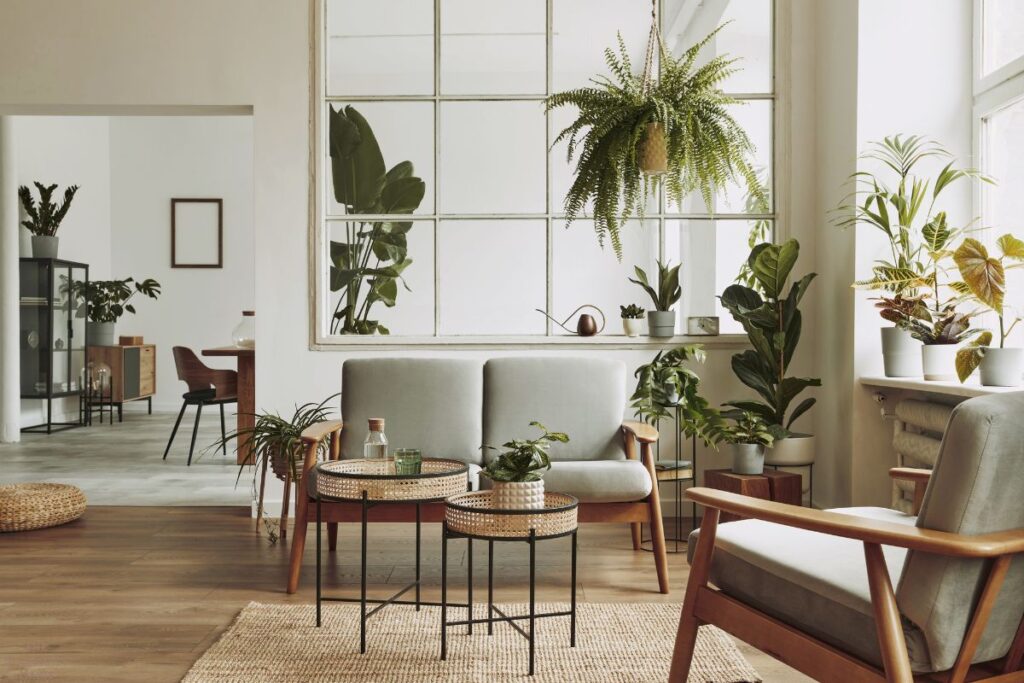
3. Try a Variety of Textures
Welcome texture into the limelight. Linen curtains, wool throws, hand-thrown ceramics, and raw woods introduce subtle depth.
Aim for tactile contrast — smooth against coarse, matte beside glossy — to keep the space from feeling flat or unfinished. They also add a feeling of coziness to a space.
4. Select High-Quality Pieces and Materials
Declutter the space and prioritize fewer, better-quality items.
Solid wood furniture, natural stone surfaces, and textiles like cotton, wool, and leather hold up beautifully with minimal care. These items are durable and gain character over time.
If you’re a budget-conscious home decor enthusiast, you can collect valuable items over time without adding visual noise or clutter.
5. Curate Your Furniture
Pick streamlined pieces with clean lines and gentle curves to tote luxury appeal. Stick to one or two statement items per room and give them the space to breathe.
Your mid-century chair or sculptural sofa should stand out rather than compete with furniture from big-box stores.
Avoid overcrowding the layout. Let traffic flow naturally and easily through the rooms instead of filling corners with excess seating and ornamentation.
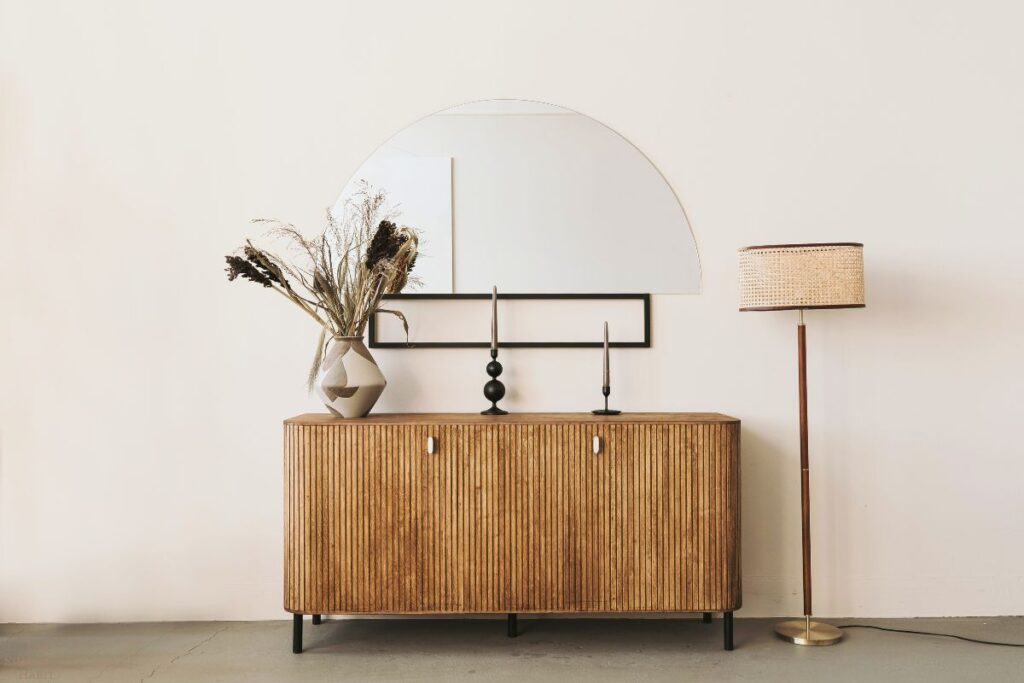
6. Light Up With Clarity and Class
Soften your home’s overall look with layered lighting. Think of warm overhead pendants, minimal sconces, recess lighting, or a few thoughtfully placed lamps.
Use LED bulbs in your lamps for up to 25% longer use and better sustainability, as you won’t replace them as frequently.
Embrace natural light as much as possible. Let it shift through sheer curtains or bounce off pale walls for a peaceful, ever-changing atmosphere.
7. Search for Sustainability
Quiet living naturally aligns with sustainability. Choose timeless, ethically made pieces over fast furniture.
Repurpose what you can and opt for nontoxic finishes and materials. Every sustainable choice adds to the story of your space, making it feel more lived in.
An indoor rug or outdoor carpet made from recycled materials is visually pleasing and saves reusable materials from landfills.
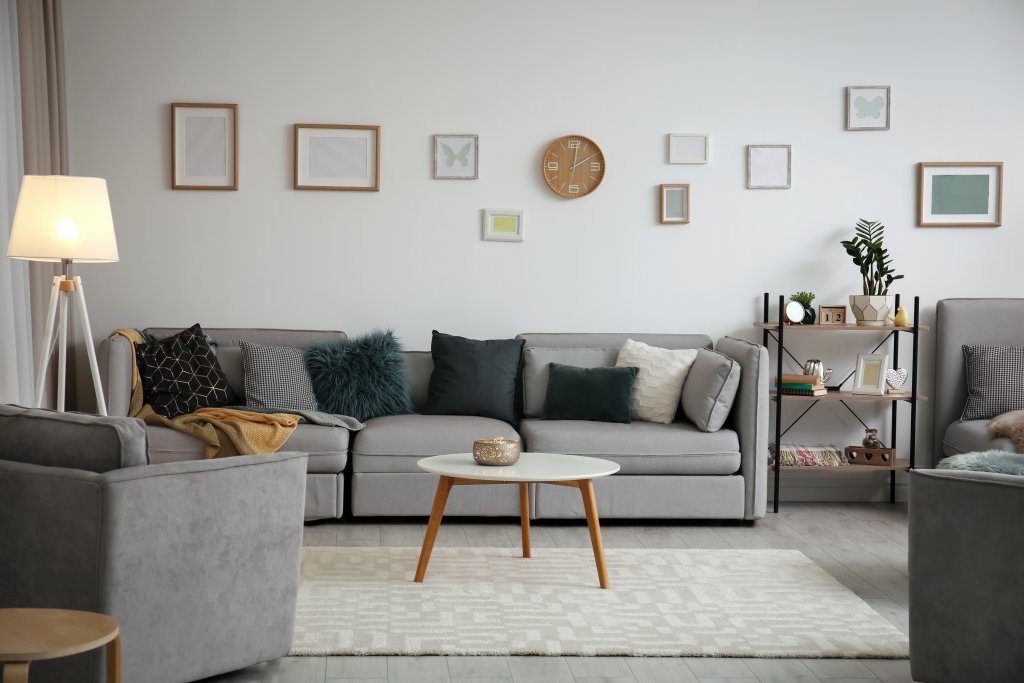
8. Embrace Your Souvenirs
Minimalism doesn’t mean impersonal. Choose a tasteful way to display your souvenirs, mementos, and heirlooms, but do so sparingly and give each item ample space.
Place one handmade basket from your trip to Morocco on your coffee table and add a few stones from your walk on the beach. Avoid covering every surface with knick-knacks.
And to travel like a minimalist, avoid purchasing souvenirs everytime you go somewhere new.
9. Enhance Architectural Features
Let the bones of your home take center stage. Expose beams, highlight clean lines, or strip things back to reveal brick or plaster.
Even modern builds can showcase unique architectural details. Float stairs or leave wall space intentionally blank to give these features room to breathe.
Highlight them with recessed lighting in alcoves or on accent walls. Remove bulky curtains to fully celebrate window frames and the play between positive and negative space.
10. Blend Indoor and Outdoor Space
Meld the inside and outside by incorporating raw textures and natural elements like plants and living walls indoors.
Use earthy materials like stone, wood, or clay, and invest in low-maintenance greenery.
When possible, align windows with gardens, patios, balconies, or outdoor layouts to maximize the view and sense of cohesive space.
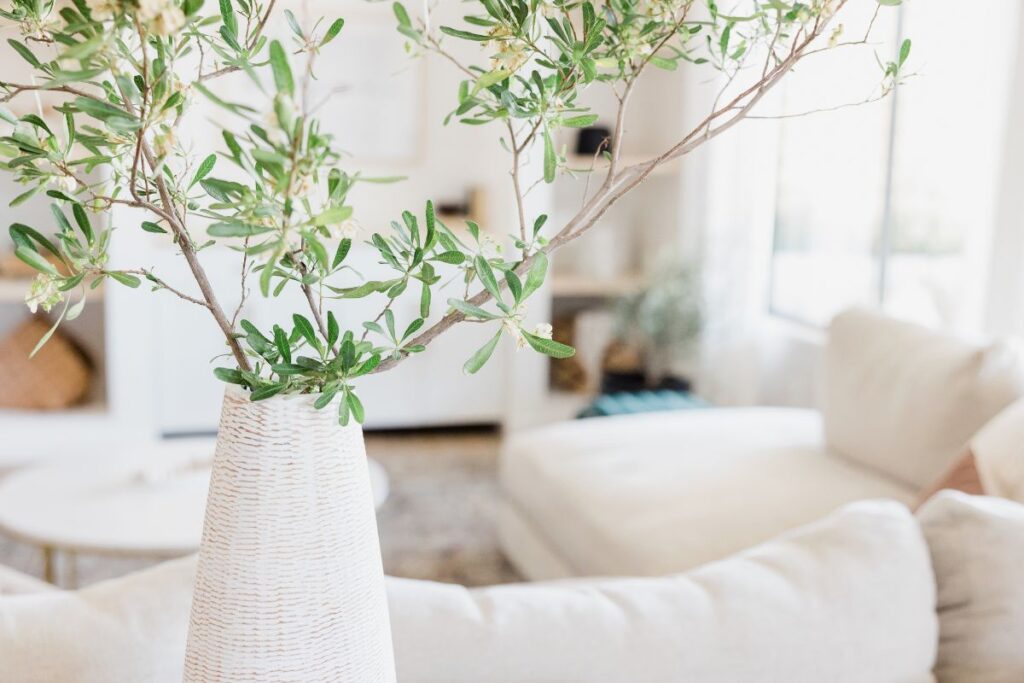
11. Add Artisanal Elements
Choose handcrafted items over mass-produced buys. A hand-thrown vase, a custom light fixture, or a handmade mug adds soul to a room.
These pieces swap out a factory-made aesthetic for an energy that’s completely human. Consider faux-bois or fake plaster-decorated furniture pieces for a cost-effective, artisanal look.
12. Opt for Timeless Pieces
You may want to work on restraint if you’re a TikTok trend-chaser. For a space that evokes quiet luxury, go for bentwood chairs, linen slipcovers, neutral rugs, and Shaker-style cabinets.
Rich tradition grounds these pieces, but they are versatile enough to suit any era. They support the room instead of shouting for attention, and they also won’t look dated in a few years.
13. Connect to Clutter-Free Living
Set aside the urge to shop and edit your space and belongings. Store what you don’t use often and display what adds value to your space.
Keep countertops and flat surfaces clear, with one or two meaningful objects. The result will be breathing room for your mind and a home that truly feels relaxing.
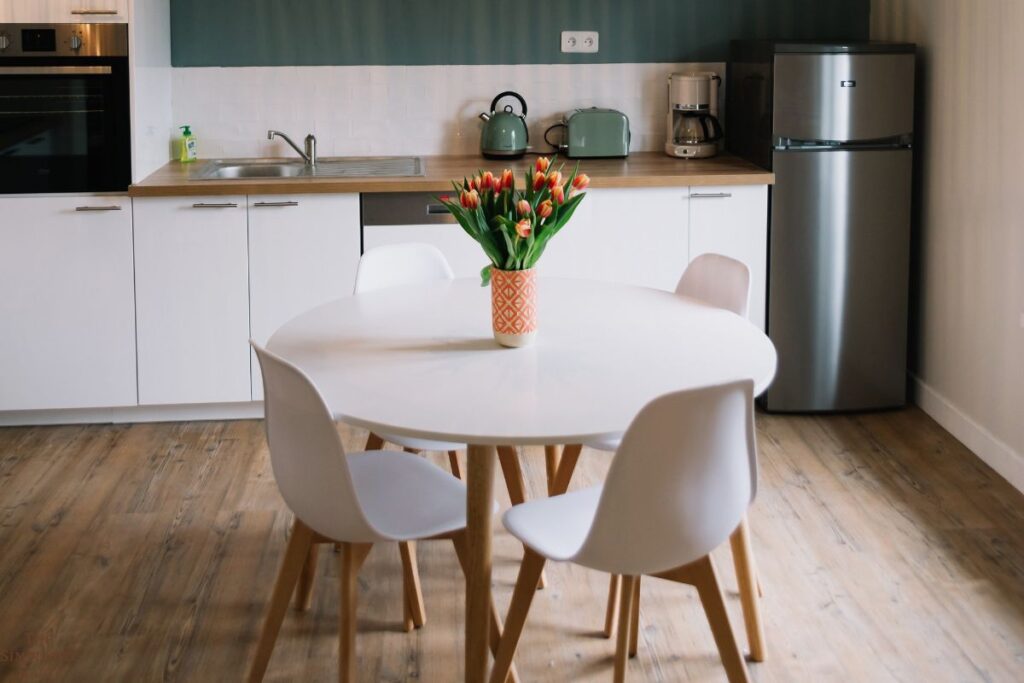
14. Appreciate Negative Space
Negative space is the bits between your furniture and other items.
That space is what frames the stuff you have. It’s like a pause or punctuation in the story of your home.
Without it, things can feel too busy and muddled.
15. Incorporate Soft Movement
Add a gentle rhythm to your home with micro-movements like breezy drapery or shadows moving across the wall as the natural light changes position during the day.
Flickering candles, nodding leaves on the living greenery wall, and curved lines on your sofas all contribute to the dynamics of your space.
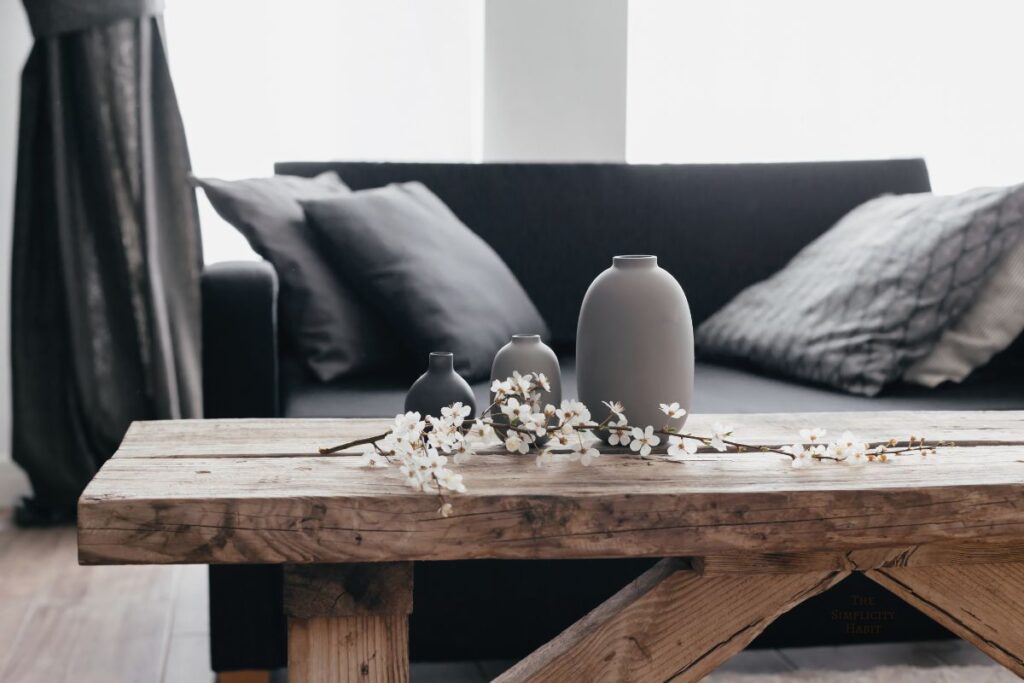
Quiet Luxury Lessons
An understated, quiet luxury home aesthetic is about calm, clarity and making space for things that matter.
When you focus on intention over excess, your home reflects ease and presence. Instead of being stark or cold, your home can exude warmth and personality.
And if quiet luxury isn’t the look you’re going for, you can still have a minimalist home while retaining your unique style.
By embracing simplicity, you design more than a look — you shape a feeling. It invites you to slow down, breathe deeply, and feel completely at home.

How do you plan to embrace quiet luxury aesthetic in a minimalist home? Let us know in the comments section below.
Sign up on the form below to get weekly decluttering tips sent straight to your inbox. You’ll also get the free Your Home Decluttered Jumpstart which includes 100 easy items to declutter and 12 high-impact areas to declutter in 10 minutes.

